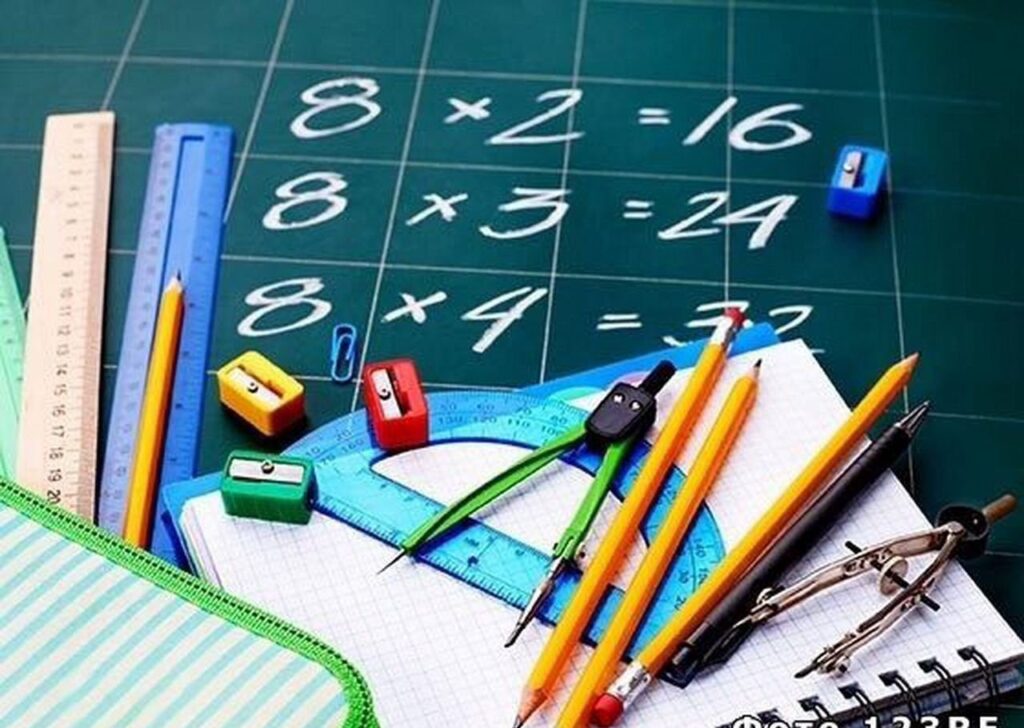Are you just starting to do homework with go math grade 6 with your child – have they been asked from the second half of the first grade? Or have long evenings over homework already become common? Do you dream that the child does his homework himself, occasionally turning to you for help? Here is a clear algorithm on how to transfer responsibility for homework to a child.
Homework effectiveness studies show that homework is not very helpful in terms of learning before high school, but that nightly vigil has other, non-academic benefits: the ability to get started, delay pleasure, get things done, persist despite disappointment and difficulties. …
And while research does not find a direct or demonstrable link between primary school homework with 1st grade go math and outcomes, at least one benefit to self-directed work is: the teacher sees students progress towards knowledge and skills. If the parents intervene and begin to “help,” the teacher gets the wrong picture.
“We sit down for lessons with the whole family”
While your child is young, you should be nearby while doing your homework. At the same time, find yourself your own occupation: you are near, but not hanging over the child. Support, but don’t interfere.
I often cook dinner while my youngest son is right there at the kitchen table doing his homework with 2nd grade go math. So I am always at his fingertips, if you need support, encouragement or advice to move in a different direction. But I’m busy with my business and I don’t feel tempted to intervene whenever my son hesitates or lets out moans of disappointment (or moans to get attention). Until about 9-10 years old, he needed a check every ten minutes, just to make sure that he did not go off course, but now he himself is able to understand if he really gets stuck, and not just “hangs” for a minute over a new one concept – and he himself calls me for help in such cases.
It is very important for the child to see that we have other things to do in life besides sitting next to and waiting for the children to get stuck in their homework and start asking questions. I spoke with many parents and found that they often make mistakes at this stage. One mother of six and nine years old children confessed: “We sit down for lessons with the whole family, and my husband and I are always ready to explain the misunderstood.”
Another parent, with whom we tried to solve the problem of daily tantrums over the lessons, painted a similar picture: every evening he and his wife fought for hours on homework together with an eight-year-old and ten-year-old daughter. In both cases, the parents were ready, waiting for the moment when the child would no longer cope with the task – and in this way they fueled the cycle of addiction, because they assumed that they could not do without the help of their elders.
When to do your homework
Some parenting books advise that you first have the children sit down for their lessons, and then, as a reward, let them play free; others, on the other hand, recommend starting with a “reward.”
Let me suggest a new concept: ask your child where and when they would prefer to do their homework. If homework turns into nightly torment, it’s time to ask a question to which the child, quite possibly, has long dreamed of giving a definite answer: “How do you want to do your homework?” All children are different. Some need to run after school, get rid of the accumulated energy, give yourself some relaxation. Others want to get down to business right away and be done with their lessons.
Parenting writer Vicky Hofl talked about the daily battles with her second-grader daughter. Vicky and her husband sat down their daughter for lessons, and she firmly refused to obey. And finally, in the words of Vicky, “something clicked.”
In the morning, at breakfast, I asked the magic question: “In a perfect world, on a perfect day, how would you rather do your homework?” And she did not hesitate a minute, as if she had been waiting for a long time for us to listen to her. “I would get up in the morning at half past five and do everything. In the evening I can not. My brain is simply not able to work.” “Okay,” I said. “Then, starting next week, you’ll sit down to your lessons when you decide for yourself. But with one condition: at 7.15 we leave the house, and no excuses. Can you handle it?”. She thought for about ten seconds and answered: “Yes.”
Vicky and her husband were prepared for this plan to fail, but it worked out. My daughter set the alarm and jumped up early in the morning to do her homework – not only the next morning after this conversation. She remained a lark in the following years and continued to do her homework at 5:30 in the morning until the end of school.
How to avoid tantrums and scandals when children are doing their homework
Once the child has found a time and place to his liking, give him time and space to fight on his own. Explain that you are nearby but are busy with your own business while he does his own. If until now you have actively helped do the homework, it will not be so easy to switch, but like the childish tantrums that caused you to clench your jaws and wait for the storm to blow away, so the tantrums over the lessons will pass, and the child, thanks to your resilience will become more independent and self-confident.
When a child is faced with disappointment, he may whine, and whine, and yell that he is failing, or in other ways give a distress signal, hoping for your intervention and rescue from the outside. At such moments, try to resist the temptation to immediately strive to “save”.
Psychologist, writer, and school counselor Michael Thompson suggested that children cope more easily when we support them in their struggle and acknowledge their efforts. “Children need us to understand what the price is, they want us to pay attention to it. It is not at all necessary to interfere quickly or yell at the child, panic and draw premature conclusions.”
Acknowledge, empathize, support the child by redirecting their attention and efforts. If he really gets stuck, suggest a new way to approach the problem – just don’t solve the problem for him.
Just as we distinguish children’s cries – when he fell and hurt himself, when he is dissatisfied with something or when he requires attention, we must learn to distinguish in the intonations with which we are called to help with homework, really insurmountable difficulties from momentary useful challenges. It’s not that easy. The main thing is to remember the ultimate goal: you are helping the child achieve independence so that he can rely on his own strength.
Finally, when the homework is complete, praise the child for the effort put into it, especially if he has encountered difficulties and frustrations along the way. The main thing is for the child to understand: you rated his stubbornness no lower, if not higher, than the answers to each question that he wrote. Whenever appropriate, repeat this maxim: The harder we work, the harder we strain our brains, the smarter we get.
How to transfer responsibility for homework to children
Here are some practical steps parents can take to help kids of all ages learn to organize and take charge of their homework. Young children need to be taught step by step until the right habits are formed. If your child is older but has never taken responsibility for their own studies, the ideal way to get started is to let them take control of their first steps.
Provide fuel. Brains cannot function without food and drink. Prepare (or have your child prepare) a healthy snack and a supply of water.
Eliminate distractions. Even small distractions lead to mistakes. A recent study found that a distraction of as little as three seconds doubles the number of errors in a task: it is likely that details of the task slip out of short-term memory.
Encourage your child to start with the hardest. Research shows that self-control resources in the brain are limited and are most readily available at the start of homework.
Evaluate the final product. Teach your child to pause at the end of the assignment and at the end of all homework and assess whether the assignment is fully completed according to the teacher’s requirements.
Do as much as you can. If, after repeated attempts, the child still does not cope with the large task, offer to divide it into parts and do as much as possible.
This is where the time comes to talk to the primary school teacher about his expectations and requirements. Some teachers rely on the parents to help the child with work, others prefer that the sections that the child did not master should be passed blank – then it is better to see what the child has learned and what has not. Personally, I prefer that the child does at least something, even if the task is not completed entirely.
Strive for learning, not excellence. The purpose of homework is not to get the right answers, but to provide the child with the opportunity to practice and build on the skills that have been learned in school today, as well as prepare for mastering the skills that will appear in the school curriculum tomorrow.
Don’t interfere!
When a child moves to middle school, and even more so to high school, it is time to refuse to participate in his homework. Studies show that at the beginning of high school, homework becomes more effective in terms of assimilating knowledge, that is, their role in education increases.
Proper homework activates knowledge already stored on the hard drive and forces the student to apply this knowledge in a new context. This is the final stage of learning, at which the student no longer remembers the answer, but creates it himself, is called “generative learning”. Generative learning is essential to mastery, and it is also difficult.
Some middle and high school students will still need help with long-term planning and time management. However, growing students should keep a journal and take responsibility for their work and deadlines. And in high school, homework is completely in the hands of the students, and parents should not participate at all in it, unless the child wants to discuss the assignment or hear feedback on his idea.
Think back to your own childhood, the days when you felt great ready for school, worked hard on your homework, and were full of confidence. Remember how you walked or drove to school and you were eager for lessons to start as soon as possible, you didn’t just want to be summoned, you were eager to present your achievements.
Let this memory keep you from the temptation to interfere with your child’s homework. Leave your son or daughter to live through their own failures and their own successes, to achieve complete control over their capabilities and their work and pride in what they managed to do. You can praise and cheer, but you cannot sit next to the table and hold the child’s hand. It is an individual journey, a solo adventure; your child will kill his own dragons and get his own well-deserved reward.
